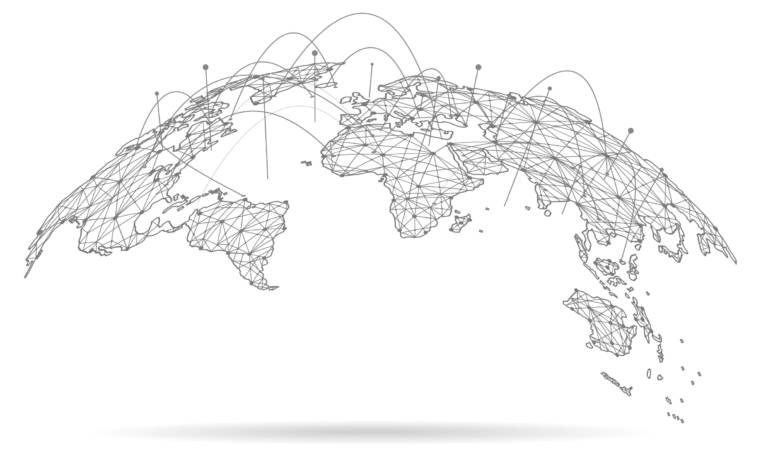Letters Rogatory vs. Mutual Legal Help Treaties: Secret Differences Discussed
Letters Rogatory vs. Mutual Legal Help Treaties: Secret Differences Discussed
Blog Article
The Function of Letters Rogatory in International Law: Key Insights
Letters rogatory offer as an essential instrument in global legislation, promoting cross-border lawful aid by enabling territories to officially request proof and actions from one another. What ramifications might these difficulties have for future lawful process?
Meaning of Letters Rogatory
In the realm of international law, letters rogatory offer as official demands issued by a court in one territory to look for support from a court in an additional jurisdiction. Letters rogatory. These demands are especially substantial in cross-border legal procedures, where the enforcement of a court's order or the gathering of evidence may be hampered due to jurisdictional constraints

The process usually calls for the asking for court to articulate the certain information or activity needed from the foreign court, sticking to the lawful procedures and conventions established in between the jurisdictions included. Once issued, the letters rogatory are transferred with diplomatic channels, which may include embassies or consulates, to ensure that the request is identified and acted upon by the foreign court. Overall, letters rogatory exhibit the cooperative structure necessary for effective global legal procedures.
Historic Context
Although the practice of letters rogatory has old roots, its formalization within the framework of international regulation arised dramatically in the 20th century. Historically, such demands for judicial aid were made use of in various legal customs, consisting of Roman legislation, where they facilitated cross-border collaboration in legal matters. The principle gained renewed focus with the surge of globalization and the boosting intricacy of global legal communications.
The mid-20th century saw the facility of treaties and conventions that sought to systematize the procedure of letters rogatory. Notably, the 1970 Hague Convention on the Taking of Evidence Abroad in Industrial or civil Matters provided a structured approach, enhancing the effectiveness of these demands - Letters rogatory. This period marked a change from casual arrangements to a much more methodical framework, which attended to the difficulties presented by differing nationwide legal systems
As states came to be more interdependent, the demand for reliable devices to collect proof throughout borders became noticeable, reinforcing the function of letters rogatory in facilitating international collaboration. Today, they remain a critical tool for obtaining proof and guaranteeing that justice transcends national boundaries, showing the developing nature of worldwide regulation in action to global challenges.
Process of Issuing Demands
The process of issuing letters rogatory generally involves a number of critical steps designed to ensure that ask for judicial assistance are clear, particular, and compliant with both domestic and global lawful requirements. A celebration seeking support has to prepare a formal request that outlines the significant facts of the situation, the relief sought, and the specific evidence or testament needed. This file should be crafted with precision to meet the legal requirements of the territory in which it will certainly be sent.
Following the preparation of the request, it is submitted to the ideal authority, commonly a court or an assigned governmental firm. This authority evaluates the request to ensure it complies with lawful criteria and step-by-step norms. Once approved, the demand is transmitted to the foreign territory via polite networks.
Upon invoice, the foreign court reviews the demand's conformity with its neighborhood regulations and practices (Letters rogatory). If approved, it proceeds to implement the request, which may involve the issuance of subpoenas or the collection of evidence. Throughout this procedure, maintaining clear interaction between the asking for and obtaining territories is vital to guarantee successful collaboration and the gratification of the demand
Difficulties and Limitations
Difficulties and constraints regularly occur in the procedure of performing find more letters rogatory, typically stemming from varying lawful systems and procedures in between territories. One considerable challenge is the varying criteria of admissibility for proof, which can cause issues in the acceptance of paperwork asked for through letters rogatory. In addition, the absence of harmony in lawful terms and definitions can develop misconceptions, complicating communication between courts in different nations.
In addition, delays prevail because of bureaucratic processes, as the demand might require to pass with several layers of lawful authorities prior to it is fulfilled. In some circumstances, the asked for jurisdiction may do not have the required resources or readiness to coordinate, additionally preventing the process. Language barriers additionally add to difficulties, as exact translation of legal documents is critical for guaranteeing that the intended message is shared without distortion.
Lastly, sovereignty problems might occur, as some states are unwilling to adhere to requests that they regard as infringing upon their legal autonomy. These challenges highlight the complexities intrinsic in making use of letters rogatory, requiring greater harmonization and participation among worldwide legal systems to enhance their performance.

Influence On International Collaboration
Recognizing the value of letters rogatory in fostering international collaboration is critical, as these demands assist in cross-border lawful assistance click over here now and promote joint efforts in criminal and civil matters. By allowing one territory to formally request aid from an additional, letters rogatory produce an organized legal framework that improves the efficiency of global interaction in between judicial authorities.
The usage of letters rogatory aids to establish common trust and respect among countries, which is essential in an increasingly interconnected globe. They function as a device not just for collecting proof however also for ensuring that legal procedures are upheld throughout borders. This is especially vital in combating transnational crime, where the inability to secure collaboration can undermine justice.
Furthermore, the dependence on letters rogatory can enhance complicated legal proceedings, reducing delays and uncertainties in worldwide investigations. explanation The step-by-step safeguards fundamental in this process contribute to the security of specific civil liberties while facilitating teamwork amongst states. Eventually, the effect of letters rogatory on global cooperation underscores their function as important tools in the promotion of justice, fostering a joint spirit that transcends national borders and lawful systems.
Final Thought
In conclusion, letters rogatory act as a crucial instrument in global legislation, assisting in cross-border legal aid and cooperation. Despite fundamental obstacles such as varying lawful requirements and governmental delays, their standard procedures promote trust fund amongst countries. The ongoing advancement of these mechanisms is essential for improving the performance of worldwide lawful procedures, inevitably cultivating more powerful partnership in both criminal and civil matters across jurisdictions. The importance of clear communication in this context can not be overemphasized.
Letters rogatory offer as a pivotal tool in international law, helping with cross-border legal support by permitting territories to officially ask for evidence and activities from one an additional.The procedure normally requires the asking for court to verbalize the particular details or activity required from the international court, adhering to the lawful procedures and conventions developed in between the jurisdictions included. Historically, such requests for judicial assistance were used in various legal traditions, including Roman regulation, where they promoted cross-border teamwork in lawful issues.The procedure of providing letters rogatory normally includes several critical actions designed to ensure that requests for judicial aid are clear, certain, and certified with both residential and international legal standards.Furthermore, delays are typical due to administrative procedures, as the request might require to pass via several layers of legal authorities before it is fulfilled.
Report this page